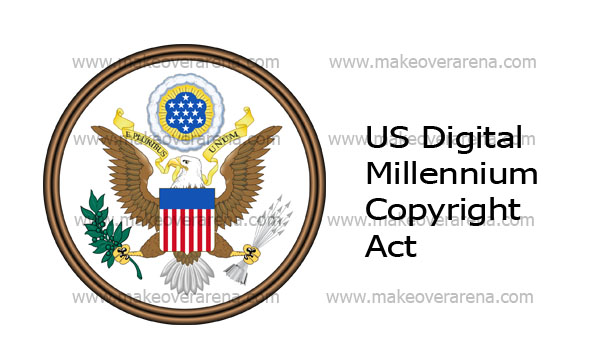The US Digital Millennium Copyright Act which is just known as the Digital Millennium Copyright Act (DMCA) is a copyright law in the United States of America. This law implements two 1996 treaties of the World Intellectual Property Organization (WIPO) which are the WIPO Copyright Treaty and the WIPO Performances and Phonograms Treaty. This US Digital Millennium Copyright Act was signed in to law by President Clinton on the 28th of October, 1998 after the bill was passed on Congress on October 12, 1998. However, the law became effective in the following year which was in October 2000. The article is here to give out all there is to know about the US Digital Millennium Copyright Act, keep on reading to find out.

US Digital Millennium Copyright Act
One very common challenge a lot of creators are faced with these days is the issue of copyright. Before now, copying someone else’s work and spreading it or selling it as yours was not very common because it was kind of difficult. The coming of the internet where works of creators are being published and seen by millions of people all over the world, the stealing of these works has been made a lot easy.
Related:
However, the law of the US Digital Millennium Copyright Act criminalizes the production and dissemination of technology, devices, or services intended to circumvent measures that control access to copyrighted works which is digital rights management (DRM).
The US Digital Millennium Copyright Act amended the Copyright Act of 1976 and also amended the titles of five (5) government organizations and employees, seventeen (17) copyrights, twenty-eight (28) judiciary, and judicial procedure and thirty-five (35) patents.
The five different titles are;
- WIPO Copyright and Performances and Phonograms Treaties Implementation Act.
- Online Copyright Infringement Liability Limitation Act
- Computer Maintenance Competition Assurance Act.
- Miscellaneous Provisions.
- Vessel Hull Design Protection Act
Digital Millennium Copyright Act
The Act makes provision for a lot of issues to be addressed most of which are of concern to libraries. These provisions in the US Digital Millennium Copyright Act have gone a long way in addressing the issues of copyrights happening ever so frequently on the web worldwide. Some of these provisions include;
- Mandates a study of effects of anti-circumvention protection rules on the “first sale” doctrine.
- Imposes rules prohibiting the circumvention of technological protection measures.
- Mandates a study of distance education activities in networked environments.
- Sets limitations on copyright infringement liability for online service providers (OSPs).
- Expands an existing exemption for making copies of computer programs.
- Provides a significant updating of the rules and procedures regarding archival preservation.
The principal transformation of the US DMCA in the area of copyright is the exemption from direct and indirect liability of internet service providers and other intermediaries. This exemption was adopted by the European Union in the Electronic Commerce Directive 2000. Much later, the Information Society Directive 2001 implemented the 1996 WIPO Copyright Treaty in the EU.
Currently, the United States of America is not the only country making use of DMCA. Other countries like Europe have also joined in, making this a means to regulate and completely stop possible the act of publishing copyrighted materials.
Search Engine Without US Digital Millennium Copyright Act
We wonder what search engines would be like with DMCA. It would have been a place of repeated results to queries, with no acknowledgment of the original writer or creator of contents. There would have been nothing new to see in different search result contents.
With the presence of DMCA, a lot of content creators and site owners do take their time to carry out their research and make sure to avoid dubbing at all costs. Search engine results too have put in place programming that would help reduce these copyrighted contents. The programming helps to filter out these kinds of contents and are restricted even before a DMCA notice is issued.
US Digital Millennium Copyright Act Takedown
The US Digital Millennium Copyright Act takedown is actually a notice. This notice is an official notification to a company, search engine, ISP, or web host informing them that the material or content is hosting or linking to infringes on a copyright.
If a company, search engine, ISP or web host receives a notice of DMCA. It is always advisable to immediately take down the material with is copyrighted. If the copyrighted material or content is not brought down by the receiving end of the notice, the ISP can forcibly take the content down.
There are different types of contents that usually get a DMCA notice or you can send a notice to. They are contents types like;
- Songs.
- Music.
- Other audio files.
- Videos.
- Digital software.
- Artwork.
- Photos.
- Images.
- Paintings.
- Books.
- Articles.
- Poetry.
- Blogs.
- Pictures that you took and posted on your business’s official social media sites, etc.
These contents can get a DMCA notice and you can issue one for contents like these if the site is located in the United States or any other states that follow the DMCA or copyright laws.
Conclusion
The US Digital Millennium Copyright Act does not apply outside the United States of America. This is because it is a law in the United States copyright law. And it only applies to websites hosted in the U.S. This goes to say that all the sites that are hosted in the U.S. are bound to abide by this law. If a site goes against this law, it doesn’t matter if the owner of the site is outside the country. As long as the hosting site is in the U.S., it can be issued a DMCA notice.



